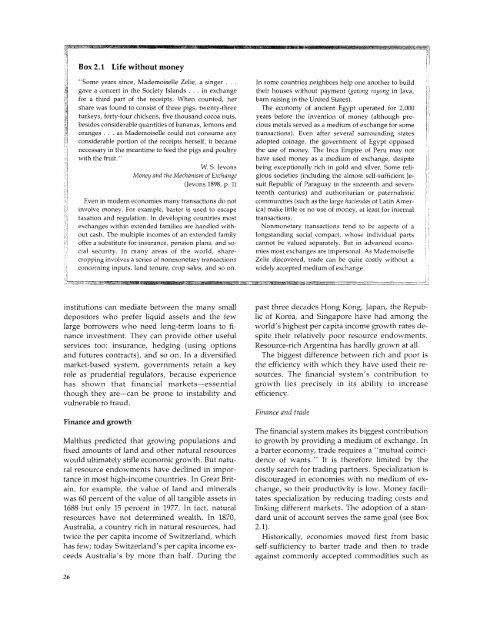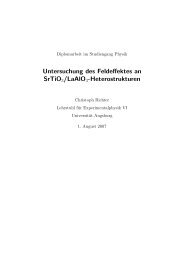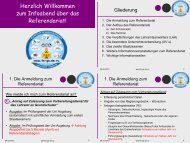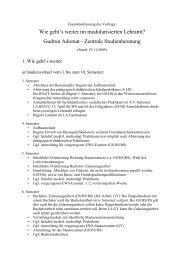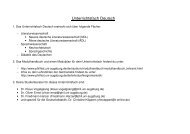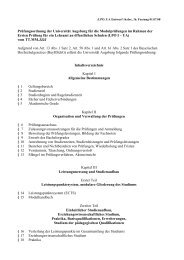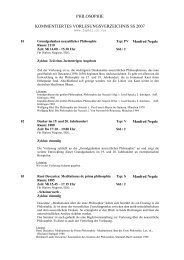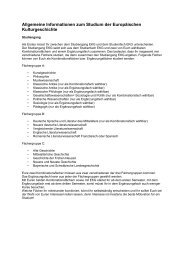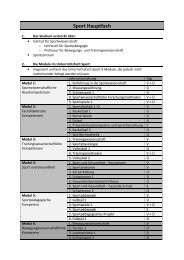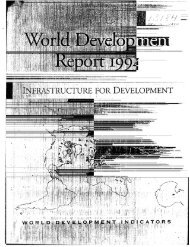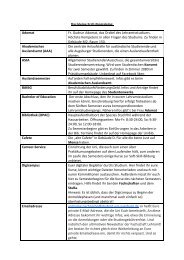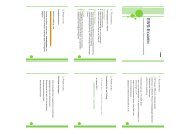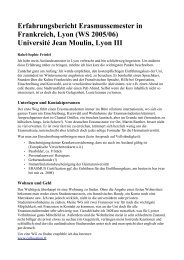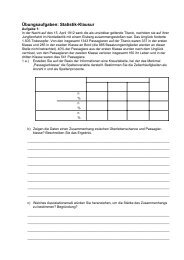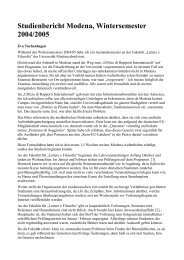Financial systems and development
Financial systems and development
Financial systems and development
You also want an ePaper? Increase the reach of your titles
YUMPU automatically turns print PDFs into web optimized ePapers that Google loves.
j<br />
Box 2.1 Life without money<br />
"Some years since, Mademoiselle Zelie, a singer . . . In some countries neighbors help one another to build<br />
gave a concert in the Society Isl<strong>and</strong>s . . . in exchange their houses without payment (gotooig royong in Java,<br />
for a third part of the receipts. When counted, her barn raising in the United States).<br />
K share was found to consist of three pigs, twenty-three The economy of ancient Egypt operated for 2,000<br />
turkeys, forty-four chickens, five thous<strong>and</strong> cocoa nuts, years before the invention of money (although prebesides<br />
considerable quantities of bananas, lemons <strong>and</strong> cious metals served as a medium of exchange for some<br />
oranges . . . as Mademoiselle could not consume any transactions). Even after several surrounding states<br />
1 considerable portion of the receipts herself, it became adopted coinage, the government of Egypt opposed<br />
necessary in the meantime to feed the pigs <strong>and</strong> poultry the use of money. The Inca Empire of Peru may not<br />
with the fruit."<br />
have used money as a medium of exchange, despite<br />
W. S. Jevons being exceptionally rich in gold <strong>and</strong> silver. Some reli-<br />
Money <strong>and</strong> the Mechanism of Exchange gious societies (including the almost self-sufficient Je- K<br />
(Jevons 1898, p. 1) suit Republic of Paraguay in the sixteenth <strong>and</strong> seven-<br />
I:l teenth centuries) <strong>and</strong> authoritarian or paternalistic<br />
Even in modern economies many transactions do not communities (such as the large haciendas of Latin Amerinvolve<br />
money. For example, barter is used to escape ica) make little or no use of money, at least for internal<br />
taxation <strong>and</strong> regulation. In developing countries most transactions.<br />
exchanges within extended families are h<strong>and</strong>led with- Nonmonetary transactions tend to be aspects of a<br />
out cash. The multiple incomes of an extended family longst<strong>and</strong>ing social compact, whose individual parts<br />
offer a substitute for insurance, pension plans, <strong>and</strong> so- cannot be valuecd separately. But in advanced econocial<br />
security. In many areas of the world, share- mies most exchanges are impersonal. As Mademoiselle<br />
cropping involves a series of nonmonetary transactions Zelie discovered, trade can be quite costly without a<br />
J concerning inputs, l<strong>and</strong> tenure, crop sales, <strong>and</strong> so on. widely accepted medium of exchange.<br />
institutions can mediate between the many small past three decades Hong Kong, Japan, the Repubdepositors<br />
who prefer liquid assets <strong>and</strong> the few lic of Korea, <strong>and</strong> Singapore have had among the<br />
large borrowers who need long-term loans to fi- world's highest per capita income growth rates denance<br />
investment. They can provide other useful spite their relatively poor resource endowments.<br />
services too: insurance, hedging (using options Resource-rich Argentina has hardly grown at all.<br />
<strong>and</strong> futures contracts), <strong>and</strong> so on. In a diversified The biggest difference between rich <strong>and</strong> poor is<br />
market-based system, governments retain a key the efficiency with which they have used their rerole<br />
as prudential regulators, because experience sources. The financial system's contribution to<br />
has shown that financial markets-essential growth lies precisely in its ability to increase<br />
though they are-can be prone to instability <strong>and</strong> efficiency.<br />
vulnerable to fraud.<br />
Finance <strong>and</strong> trade<br />
Finance <strong>and</strong> growth<br />
The financial system makes its biggest contribution<br />
Malthus predicted that growing populations <strong>and</strong> to growth by providing a medium of exchange. In<br />
fixed amounts of l<strong>and</strong> <strong>and</strong> other natural resources a barter econorny, trade requires a "mutual coinciwould<br />
ultimately stifle economic growth. But natu- dence of wants." It is therefore limited by the<br />
ral resource endowments have declined in impor- costly search fcr trading partners. Specialization is<br />
tance in most high-income countries. In Great Brit- discouraged in economies with no medium of exain,<br />
for example., the value of l<strong>and</strong> <strong>and</strong> minerals change, so their productivity is low. Money faciliwas<br />
60 percent of the value of all tangible assets in tates specialization by reducing trading costs <strong>and</strong><br />
1688 but only 15 percent in 1977. In fact, natural linking different markets. The adoption of a stanresources<br />
have not determined wealth. In 1870, dard unit of account serves the same goal (see Box<br />
Australia, a country rich in natural resources, had 2.1).<br />
twice the per capita income of Switzerl<strong>and</strong>, which Historically, economies moved first from basic<br />
has few; today Switzerl<strong>and</strong>'s per capita income ex- self-sufficiency to barter trade <strong>and</strong> then to trade<br />
ceeds Australia's by more than half. During the against commonly accepted commodities such as<br />
26


